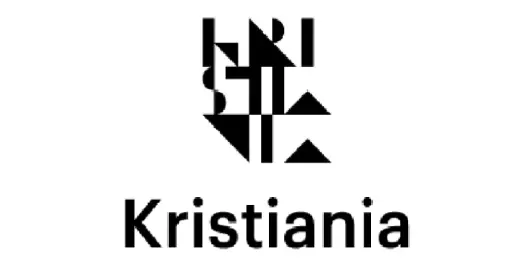Ledig stilling på Universitetet i Oslo
Blindern og Urbygningen (Foto: Wikimedia og Colourbox)
Research Fellow related to Computational Literacy in Mathematics and Science Education
Deadline: 15.03.2021
Universitetet i Oslo
The University of Oslo is Norway’s oldest and highest ranked educational and research institution, with 28 000 students and 7000 employees. With its broad range of academic disciplines and internationally recognised research communities, UiO is an important contributor to society.
The Department of Teacher Education and School Research (ILS) is one of three departments at The Faculty of Educational Sciences at the University of Oslo.
ILS is a leading institution in the fields of subject didactics, school leadership and practice-relevant school research. It hosts Norway's first Centre of Excellence in Education, ProTed – a joint project between the University of Oslo and the University of Tromsø.
EKVA (Unit for quantitative analysis in education) is also part of the department, as well as four interfaculty research groups (CLEG, TEPEC, SISCO and LEA).
The Department enrols 400 students in the Teacher Education Programme (PPU) and administers the university’s Graduate Teacher Education Programme (Lektorprogrammet) with about 300 new students each year. About 200 students follow the Master Programme in Educational Leadership. ILS also manages the study programme Teach First Norway in cooperation with the City of Oslo Education Agency and Equinor.
The Department of Teacher Education and School Research has approximately 40 administrative and 100 academic staff.
Job description
A position as a research fellow is vacant at the Department of Teacher Education and School Research (ILS) at the University of Oslo (UiO), related to computational literacy in mathematics and science teacher education.
The position will be part of an interdisciplinary collaboration between the ProTed, Center of Excellence in Teacher Education at ILS and the Center for Computing in Science Education (CCSE) at the Faculty of Mathematics and Natural Sciences (MN). The empirical context of the PhD project will therefore be linked to the education of future science and mathematics teachers through the five-year Master of Education program (Lektorprogrammet).
ProTed works with innovations in teacher education with an overarching goal to promote coherent, integrated programs and is a catalyst for research and development through systematic interventions, analyses and dissemination. CCSE is focusing on integrating programming in education across the sciences and aims to lead research-based development of new learning materials, methods, and practices, to study their effects, and see how they transform teaching culture and student learning.
The PhD project will focus on studying how student teachers in science and mathematics teachers in the Master of Education program develop scientific computational literacy in disciplinary subjects and how these areas of expertise can be integrated into their pedagogical practice. In learning how to become a professional teacher, student teachers move from knowledge of disciplines (such as physics, math, biology etc.) to knowledge of pedagogy and subject didactics for teaching those disciplines in schools. Science teacher education students’ practices will be examined empirically as they often move across disciplinary boundaries between the two faculties.
The PhD project is expected to contribute to the knowledge base for teacher education by studying the ways in which student teachers in science and mathematics develop their professional digital competence and specifically, computational literacy in connection with their pedagogical practice. In that, the PhD project will contribute to developing pedagogical models to support the development of computational literacy in teacher education, by researching methods and applications used in both discipline courses and professional courses in teacher education.
The Norwegian education system has the ambition to integrate computing and computational thinking in various disciplines, with the goal of raising the level of computational literacy across the population. Computational literacy is a composite notion, which refers to programming knowledge and skills, but also to problem solving, scientific modeling, data analysis, and strategies for communicating computational methods and results. Being computationally literate creates opportunities for new ways of learning and expression in increasingly digitized contexts. Such competencies and opportunities are considered essential; therefore, research on the topic has become a high priority.
More about the position
The fellowship period is up to 4 years, with 3 years devoted to research education. The position entails a compulsory workload of 25% consisting of teaching and supervision duties and research assistance. The place of work will be the Department of Teacher Education and School Research.
The research fellow must take part in the UV Faculty’s approved PhD program and is expected to complete the project within the set fellowship period. The main purpose of the fellowship is research training leading to the successful completion of a PhD degree.
Please contact Head of ProTed Professor Doris Jorde for further information about ProTed and CCSE and potential projects.
Qualification requirements
- Applicants must satisfy the requirements for admission to the Faculty’s PhD program
- Applicants must hold a Master’s degree or equivalent in education or another relevant academic field (e.g., science education, mathematics education, educational sciences, educational psychology, social or behavioral sciences)
- The master’s degree (120 ECTS) must have a minimum grade B (ECTS grading scale) or equivalent. It must include a thesis of at least 30 ECTS with a minimum grade B
- Fluent oral and written communication skills in English and a Scandinavian language
- Knowledge/experience with programming and scientific computing is an advantage
- Good ability to collaborate across different disciplinary contexts, nationally and internationally
- Personal suitability and motivation for the position
Further information on admission requirements and an application form can be found at this website.
Assessment of application
In assessment of applications, emphasis will be placed on:
- The quality and relevance of the project description, which must be submitted with the application
- The applicant’s personal suitability and motivation for the post, including his/her ability to collaborate and to form part of a cross-disciplinary academic community.
- Other qualifications that meet the objectives forming the basis of this type of post
We offer
- Salary NOK 482 200 – 526 000 per annum depending on qualifications in a position as PhD Research fellow, (position code 1017)
- A stimulating and attractive working environment
- Attractive welfare benefits and a generous pension agreement, in addition to Oslo’s family-friendly environment with its rich opportunities for culture and outdoor activities
How to apply
The application must include
- cover letter statement of motivation and research interests
- CV (summarizing education, positions and academic work)
- Project description (max. 8-10 pages cf. guidance)
- Copies of educational certificates (academic transcripts only)
- A complete list of publications and academic works
- List of reference persons: 2-3 references (name, relation to candidate, e-mail and phone number)
The application with attachments must be delivered in our electronic recruiting system, please follow the link “Apply for this job”. Foreign applicants are advised to attach an explanation of their University's grading system. Please note that all documents should be in English (or a Scandinavian language).
When evaluating the application, emphasis will be given to the eventuelt “project description” and the applicant’s academic and personal prerequisites to carry out the project. Applicants may be called in for an interview.
Formal regulations
Please see the guidelines and regulations for appointments to Research Fellowships at the University of Oslo.
No one can be appointed for more than one PhD Research Fellowship period at the University of Oslo.
According to the Norwegian Freedom of Information Act (Offentleglova) information about the applicant may be included in the public applicant list, also in cases where the applicant has requested non-disclosure.
The appointment may be shortened/given a more limited scope within the framework of the applicable guidelines on account of any previous employment in academic positions.
The University of Oslo has an agreement for all employees, aiming to secure rights to research results etc.
Contact information
Apply for this job















